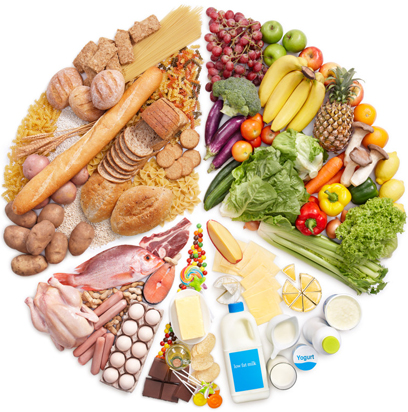 Located in the front of the neck, the thyroid is one of the most important glands in the body. The hormones that this gland secretes control some major functions such as sleep, weight management, the way the body uses energy and the way it metabolizes food. Women are at a higher risk of thyroid conditions and chronic stress due to hormone imbalances caused during childbearing and menopause.
Located in the front of the neck, the thyroid is one of the most important glands in the body. The hormones that this gland secretes control some major functions such as sleep, weight management, the way the body uses energy and the way it metabolizes food. Women are at a higher risk of thyroid conditions and chronic stress due to hormone imbalances caused during childbearing and menopause.
Malfunctioning of the thyroid can result in two conditions – hypothyroidism (thyroid under activity) and hyperthyroidism (thyroid over activity). Both are usually manageable with medication. However, including certain foods and nutrients in your diet can maintain thyroid health and encourage proper functioning of this butterfly-shaped gland.
- Iodine: This mineral makes up the thyroid hormones and protects the thyroid gland. Sea vegetables and seafood such as scallops, cod, shrimp, tuna, salmon, and sardines as well as milk are excellent sources of this mineral. Use iodized salt which is fortified with this mineral.
- Selenium: It has an essential role in the thyroid gland, acting as an antioxidant and protecting the gland. It facilitates the production of the hormone and is necessary for the conversion of T4 to T3, the most essential, active, iodine-containing hormones we have. Chia seeds, brown rice, broccoli, cabbage, spinach, Brazil nuts, and white button mushroom are selenium-rich foods.
- Manganese: Maintaining liver health is essential for proper thyroid function and manganese helps in the production of protective liver antioxidants. It also works wonders in helping to shed a few extra pounds from the hips. Manganese rich foods include spices and herbs, roasted pumpkin and squash seeds, mussels, oysters, and clams.
- Tyrosine: This amino acid is the central molecule of the thyroid hormone. Supplemental tyrosine helps promote brain activation, mental clarity, and better mood. Cheese, pork, fish, chicken, nuts, soybeans, eggs, dairy, beef, lamb, seeds, beans, and whole grains are foods that are rich in tyrosine.
- Iron: This mineral helps with formation and transport of thyroid hormone into your cells. Shortness of breath, vertical ridges in the fingernails and muscle fatigue means you lack iron. Iron rich foods include beef or chicken liver, cooked beans, spinach, broccoli, pumpkin, sesame, or squash seeds and broccoli.
- Zinc: This nutrient supports efficient thyroid function. It helps the thyroid hormone bind to the DNA receptors inside the cells. Zinc supplements are recommended for conditions such as fatigue, loss of sex drive, and weak fingernails. Zinc rich foods include oyster, red meat, poultry, beans, nuts, whole grains, fortified breakfast cereals, and dairy products.
Following the right diet supports the thyroid naturally. If you are feeling unusually stressed, tired, and your appetite has altered, it could be a sign of thyroid malfunction. Other symptoms include poor memory, slow down of digestive processes leading to constipation, and painful extremities and muscles. Individual conditions vary and not all patients with thyroid problems have these symptoms. Others may have these symptoms even if they do not have thyroid disease. Consult your physician and get yourself tested if thyroid illness is suspected.
